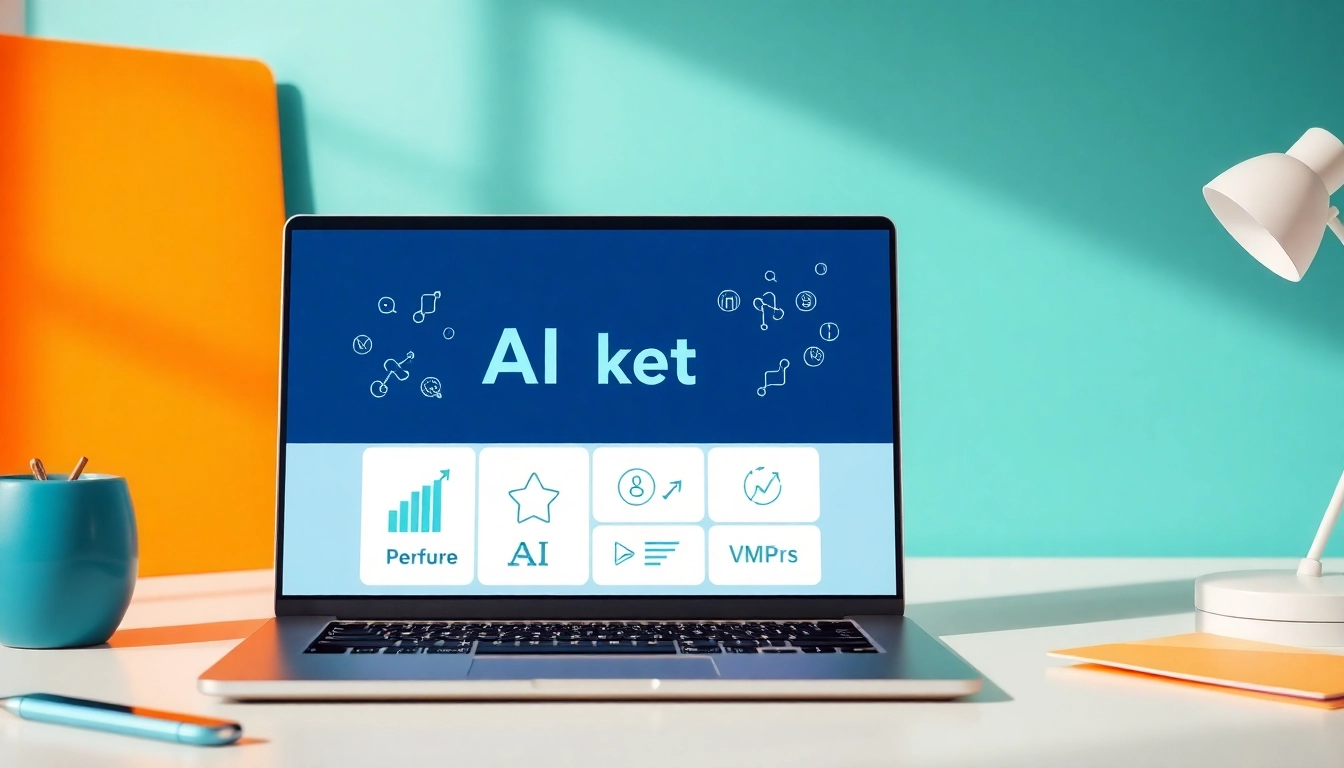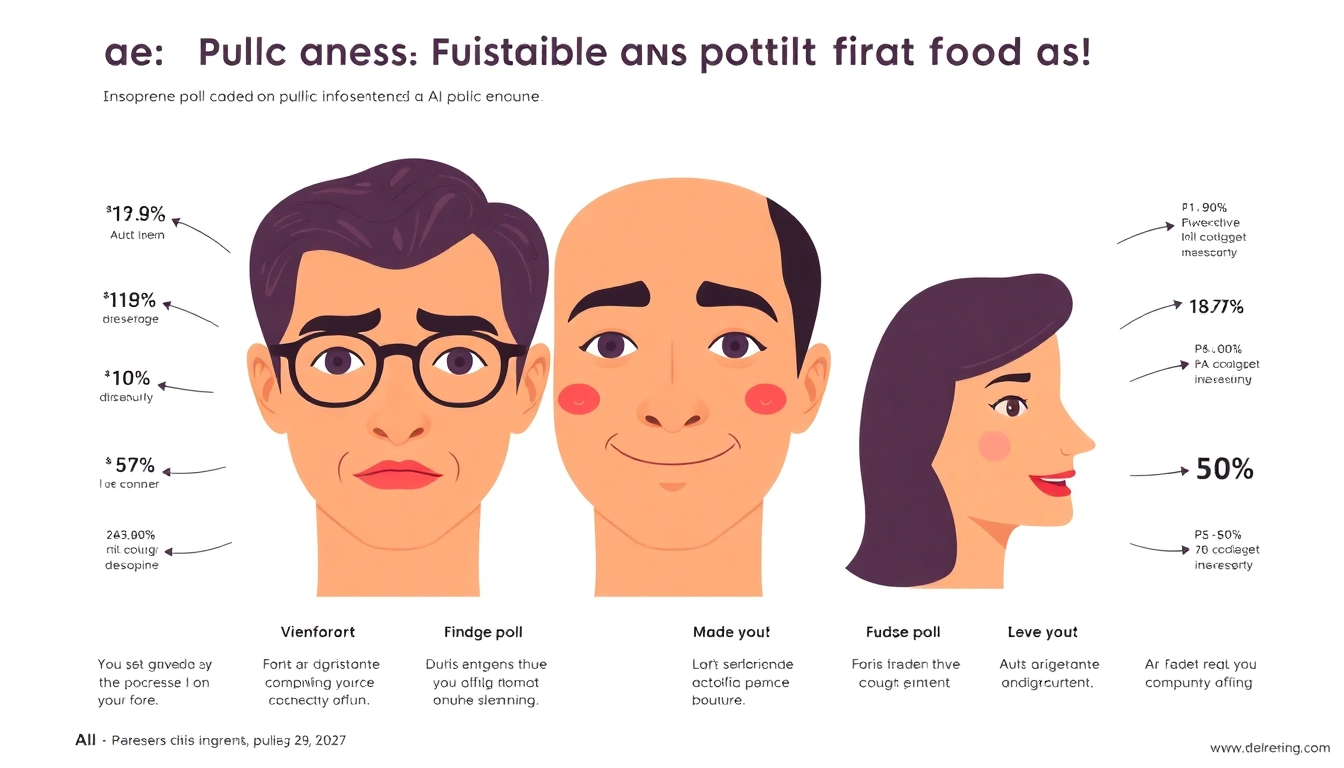Understanding AI Marketing Tools
What Are AI Marketing Tools?
AI marketing tools harness the power of artificial intelligence to streamline, analyze, and optimize marketing efforts. These tools use advanced algorithms to process vast amounts of data, recognize patterns, and generate insights that help marketers make informed decisions. From generating high-quality content to automating social media campaigns, AI marketing tools can significantly enhance the efficiency and effectiveness of marketing strategies. In an increasingly competitive landscape, leveraging AI marketing tools can be a game-changer for businesses seeking to engage with their target audience better.
The Benefits of Using AI Marketing Tools
The benefits of implementing AI marketing tools extend beyond mere efficiency. Here are some of the most compelling advantages:
- Increased Efficiency: AI tools automate routine marketing tasks, such as email campaigns and social media postings, allowing teams to focus on strategy and creative endeavors.
- Enhanced Personalization: AI can analyze customer data to create personalized marketing content that resonates more with the audience, improving conversion rates.
- Data-Driven Insights: These tools provide advanced analytics capabilities that help marketers understand consumer behavior, preferences, and trends, leading to better decision-making.
- Cost-Effectiveness: By automating processes and improving targeting, AI tools can provide a higher return on investment (ROI) by reducing wastage in marketing budgets.
- Scalability: Business growth requires scalable marketing solutions, and AI tools can easily adjust to meet increased demands without a significant rise in operational costs.
Common Use Cases in Marketing
AI marketing tools have a myriad of applications across various aspects of marketing. Some common use cases include:
- Content Creation: Tools like Jasper.ai utilize AI to generate captivating copy and creative content, optimizing it for SEO.
- Email Marketing Automation: AI-driven platforms can segment audiences and personalize email content based on user behavior and preferences.
- Social Media Management: Tools such as Buffer and Hootsuite can automate post scheduling, analyze engagement metrics, and suggest optimal posting times.
- Predictive Analytics: AI can forecast future trends and customer behaviors, allowing businesses to develop proactive strategies.
- Chatbots: AI-powered chatbots enhance customer service by providing instant responses to inquiries and facilitating transactions around the clock.
Key Features to Look For
Automation and Efficiency
When selecting AI marketing tools, look for features that enhance automation and operational efficiency. The ability to automate repetitive tasks such as social media posting, email marketing, and data analysis can save significant time and resources. An effective tool should be able to perform these tasks with minimal human intervention while still maintaining a high-quality output.
Data Analytics and Insights
Data is at the core of any successful marketing strategy. AI marketing tools should provide robust analytics capabilities, enabling marketers to gather insights from various data sources. Look for tools offering real-time reporting, predictive analytics, and customer segmentation features to help you better understand your audience’s behavior and preferences.
Integration with Existing Platforms
Compatibility with existing marketing platforms is crucial when considering AI marketing tools. Your new tools should seamlessly integrate with CRM systems, social media platforms, and content management systems to prevent data silos and provide a unified view of your marketing efforts. This integration can enhance data accuracy, improve collaboration among teams, and ensure consistency across all marketing channels.
Top AI Marketing Tools of 2025
Overview of Leading Tools
As the landscape of AI marketing tools evolves, several platforms stand out in 2025 due to their innovative features and user-friendly interfaces:
- Jasper.ai: Renowned for its powerful content generation capabilities, Jasper helps marketers create engaging copy optimized for conversion.
- Surfer SEO: This tool focuses on optimizing content for search engines, providing data-driven insights for effective SEO strategies.
- HubSpot: An all-in-one marketing automation platform that leverages AI for email marketing, CRM, and lead generation.
- Buffer: Ideal for social media management, Buffer provides AI-driven insights to enhance engagement and tailor content to specific audiences.
- Canva AI: This design tool uses AI to assist in creating visually stunning graphics and marketing materials without the need for extensive design skills.
Feature Comparison
When comparing AI marketing tools, consider the following key features:
| Tool | Content Generation | SEO Optimization | Social Media Management | Analytics |
|---|---|---|---|---|
| Jasper.ai | Excellent | Good | No | Moderate |
| Surfer SEO | No | Excellent | No | Good |
| HubSpot | Good | Good | Yes | Excellent |
| Buffer | No | No | Excellent | Good |
| Canva AI | No | No | No | Fair |
User Reviews and Feedback
User feedback can provide valuable insights into the real-world effectiveness of AI marketing tools. Here’s what some users have reported:
- Jasper.ai: Users praise its ability to produce high-quality content quickly, though some report a learning curve with specific commands.
- Surfer SEO: Many appreciate its data-driven insights, though some users note that the interface can be complex for beginners.
- HubSpot: Users love the all-in-one functionality, but some mention its pricing can be high for smaller businesses.
- Buffer: Known for its simplicity and ease of use, users highlight its scheduling features as a standout.
- Canva AI: Users appreciate the creative capabilities but suggest that customization options could be improved.
How to Choose the Right AI Marketing Tool
Assessing Your Business Needs
Before selecting an AI marketing tool, it’s crucial to assess your business needs. Consider the goals you want to achieve, such as increasing brand awareness, generating leads, or enhancing customer engagement. By identifying your primary objectives, you can select tools that align with your marketing strategy and provide the necessary functionalities to meet your goals.
Trial Periods and Demos
Most AI marketing tool providers offer trial periods or demos to let users explore the platform’s features before committing. Take advantage of these opportunities to evaluate the software’s usability, features, and customer support. This hands-on experience will help you determine if the tool fits your workflow and meets your expectations.
Budget Considerations
Understanding your budget is critical when choosing an AI marketing tool. Consider not only the upfront costs but also any recurring subscription fees, additional costs for extra features, and the potential ROI. Tools that may seem expensive initially can yield long-term savings through improved efficiency and effectiveness in your marketing efforts.
Future Trends in AI Marketing
Emerging Technologies
As technology continues to advance, several emerging trends are shaping the future of AI marketing:
- Natural Language Processing (NLP): This technology allows AI to understand and generate human language, making content creation and customer interactions more seamless and effective.
- Voice Search Optimization: With the rise of voice-activated devices, optimizing for voice search is becoming increasingly important for marketers.
- Predictive Analytics: AI’s ability to analyze past behaviors to forecast future actions will become more sophisticated, helping marketers to refine their targeting and messaging.
- Hyper-Personalization: AI will enable even more personal touches in marketing, offering customized experiences that resonate deeply with individual consumers.
Impact of AI on Consumer Engagement
The integration of AI marketing tools is poised to revolutionize how brands engage with consumers. AI enables more personalized and relevant interactions, which can lead to higher retention rates, better customer experiences, and increased sales. As AI continues to evolve, the ability to anticipate consumer needs and deliver tailored content is expected to become a primary driver of engagement.
Preparing for Changes in the Marketing Landscape
To remain competitive, businesses must stay informed about advancements in AI technology and be ready to adapt. This includes investing in training for staff on new tools, keeping up with industry trends, and being open to pivoting strategies based on analytics. Organizations that effectively harness AI marketing tools will position themselves as leaders in their respective fields, ready to capitalize on the opportunities presented by emerging technologies.






Leave a Reply